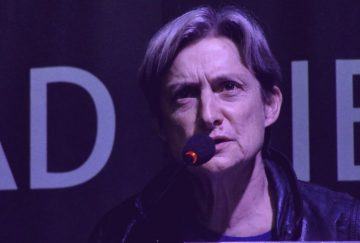Brandon M. Terry in the Boston Review:
 Judith Butler is arguably the most influential critical theorist of our era. Her early books, such as Gender Trouble (1990) and Bodies That Matter (1993), anticipated a profound social and intellectual upheaval around sex, sexuality, gender norms, and power. Like many readers of my generation, I was introduced to Butler’s work just as these changes began to accelerate, and her ideas became part of mainstream discourse. In recent years, Butler has turned her insights about norms and exceptions, the psychic life of power, and the politics of resistance toward political ethics. In December Butler and I discussed her latest book, The Force of Nonviolence, which explores “nonviolence” as a project capable not simply of disclosing structural and repressive forms of violence, but also of productively channeling the tensions of social life away from retribution and resentment toward a radical and redemptive notion of equality.
Judith Butler is arguably the most influential critical theorist of our era. Her early books, such as Gender Trouble (1990) and Bodies That Matter (1993), anticipated a profound social and intellectual upheaval around sex, sexuality, gender norms, and power. Like many readers of my generation, I was introduced to Butler’s work just as these changes began to accelerate, and her ideas became part of mainstream discourse. In recent years, Butler has turned her insights about norms and exceptions, the psychic life of power, and the politics of resistance toward political ethics. In December Butler and I discussed her latest book, The Force of Nonviolence, which explores “nonviolence” as a project capable not simply of disclosing structural and repressive forms of violence, but also of productively channeling the tensions of social life away from retribution and resentment toward a radical and redemptive notion of equality.
More here.
